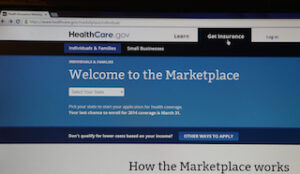It has been widely publicized that the GOP tax bill – the Tax Cuts and Jobs Act passed in Congress on Wednesday – will, as of 2019, eliminate the ACA-mandated penalty for not having health insurance coverage. Note that the tax bill does not actually repeal the individual mandate itself – just the penalty for not having coverage.
Once the legislation becomes law, people who don’t qualify for exemptions will still face a penalty if they don’t have health insurance in 2018. The penalty stands at $695 per adult, or 2.5% of household income — whichever figure is greater. In 2017, health insurance is considered unaffordable if the cheapest comprehensive coverage a person can find would cost more than 8.16% of the person’s household income.
Many people may not realize that the tax penalties aren’t eliminated under the tax overhaul bill until 2019, so people shopping for individual insurance who gave up on the process thinking there would be no penalty will still have to pay the penalty for the 2018 tax year.
With the federal penalty set to be eliminated as of 2019, it is estimated many more people will choose to go without health insurance. As a result, a number of states are considering creating state-based penalties to keep encouraging people to obtain/maintain coverage.
Connecticut, Maryland and California are states known to be considering new mandates, as is Washington D.C. Massachusetts, meanwhile, never repealed the state mandate it had imposed before Obamacare went on the books. States considering a penalty would need to decide how much of a penalty people would pay, create regulations to define reporting requirements, and the whole package would need to pass a state legislature in 2018 to take effect by 2019.
As a result of the repeal of the mandate, the Congressional Budget Office predicts the number of uninsured Americans would grow by 4 million people in 2019 and by 13 million by 2027. The CBO also estimates there would be an immediate increase of about 10% in premiums because the risk pool that remains would be older and sicker. As healthy people will have less incentive to sign up for coverage, health insurers left with the older, sicker pool of customers will have to raise premiums.
President Trump told reporters at the White House on Wednesday that with passage of the tax bill, “we have essentially repealed Obamacare.”
Obamacare’s fifth open enrollment period ended Dec. 15. In the 39 states using the federal HealthCare.gov insurance exchange, 4.7 million people signed up for 2018 coverage, as of Dec. 9 – about 4.5 million fewer people who signed up than last year.
This year’s lower numbers are being attributed to reasons including fewer plan options and higher premiums; a shorter open enrollment period (from 3 months last year to 45 days this year); and a cut in the Obamacare advertising budget from $100 million to $10 million.
California, one of the states that operates its own exchange, Covered California, earlier this month reported more than 100,000 new enrollees and 1.2 million renewals during the first month of open enrollment – a 28% increase compared to last year.
MORE:













